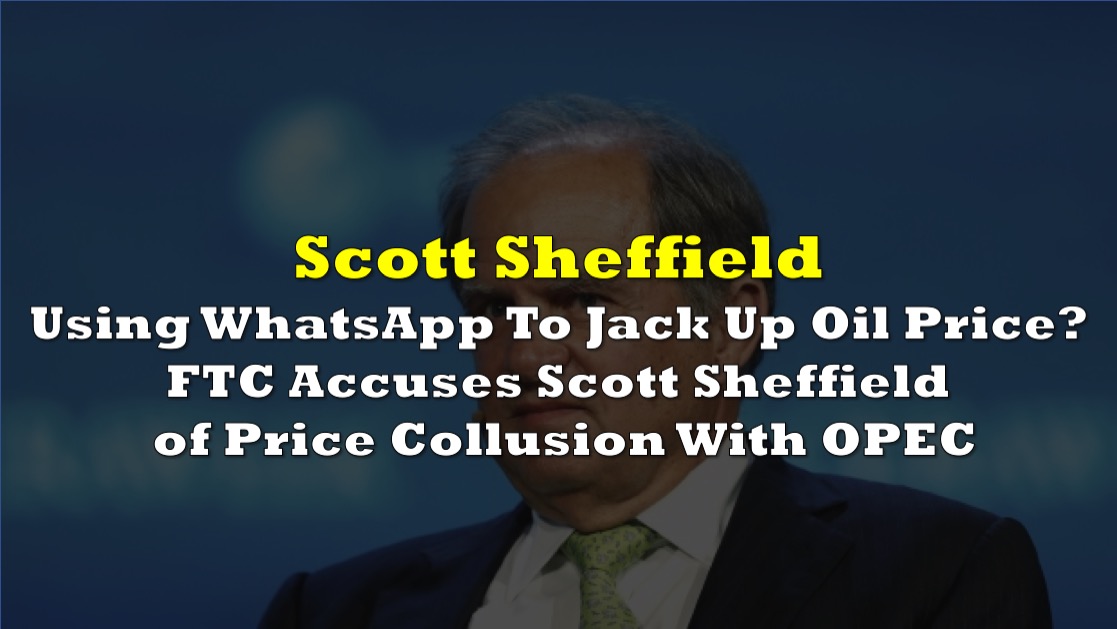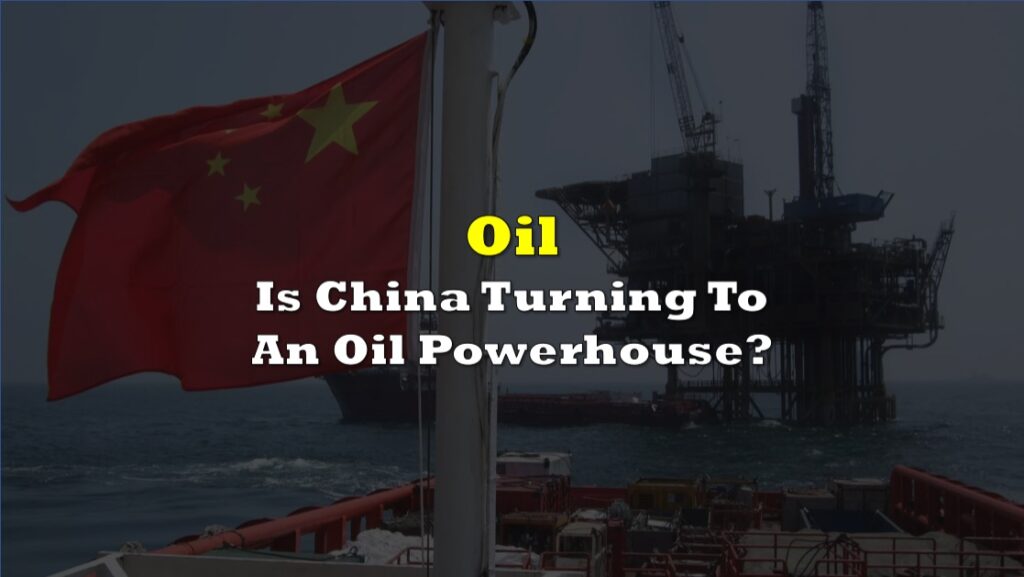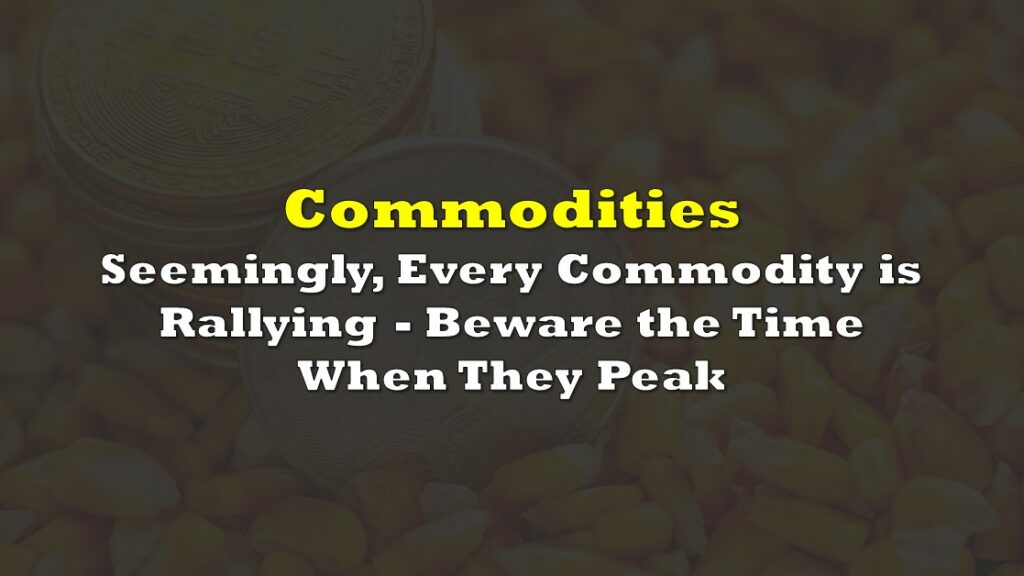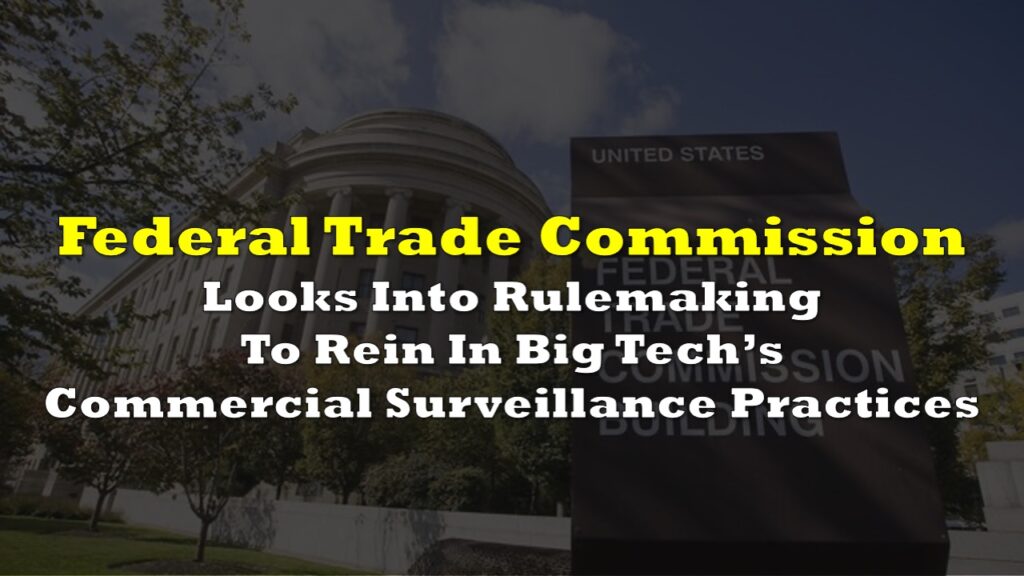The Federal Trade Commission (FTC) has unveiled allegations of collusion within the oil industry, suggesting that certain key players worked to artificially inflate oil prices through coordinated limitations on drilling activities. The commission’s complaint sheds light on clandestine communications, including the use of texts and WhatsApp messages, purportedly aimed at manipulating gasoline prices.
BREAKING: Oil industry players worked to fix prices at artificially high levels by coordinating limitations on how much oil they would drill — per new complaint from the Federal Trade Commission
— Tristan Snell (@TristanSnell) May 2, 2024
FTC alleges that oil execs used texts and WhatsApp to jack up the price of gasoline
Among the accused figures is the former CEO of shale oil company Pioneer Natural Resources, Scott Sheffield. The FTC asserts that Sheffield attempted to collaborate with OPEC officials to drive up oil prices.
This accusation has prompted U.S. antitrust enforcers to take the step of barring Sheffield from Exxon Mobil’s board, pending potential criminal investigation, allowing Exxon to close a $60-billion stock deal to acquire Pioneer.
“Mr. Sheffield’s past conduct makes it crystal clear that he should be nowhere near Exxon’s boardroom. American consumers shouldn’t pay unfair prices at the pump simply to pad a corporate executive’s pocketbook,” said FTC’s Bureau of Competition Deputy Director Kyle Mach.
The allegations suggest a pattern of communication through “public statements, text messages, in-person meetings, WhatsApp conversations and other communications” between Sheffield and OPEC representatives, spanning discussions on crude-market dynamics, pricing, and output. It is alleged that these communications sought to align oil production across the Permian Basin with OPEC+, a consortium of oil-producing nations.
Furthermore, the FTC has expressed concerns over Sheffield’s potential appointment to Exxon’s board, citing the risk of exacerbating collusive behavior within the industry. This concern is bolstered by Sheffield’s existing positions on the boards of companies that directly intersect with Exxon’s operations.
Exxon Mobil, however, has distanced itself from the allegations, emphasizing their inconsistency with the company’s business practices. The proposed consent order by the FTC not only prohibits Sheffield from joining Exxon’s board but also imposes restrictions on Pioneer employees or directors joining the board for a period of five years.
“We learned about these allegations from the Federal Trade Commission,” said an Exxon spokeswoman. “They are entirely inconsistent with how we do business.”
For years, Sheffield served as the de facto spokesperson for the shale industry, frequently providing insights on market trends. His retirement as CEO of Pioneer in late 2023 marked the culmination of a career during which he transformed Pioneer from a modest producer into the flagship of the Permian Basin.
Price fixing
Eric Grannon, an antitrust lawyer at White & Case, criticized the FTC’s approach, suggesting that they were effectively accusing Sheffield of price fixing without affording him the opportunity to defend himself. Grannon argued that using the merger-review process to derail an executive’s career lacks principled antitrust enforcement, especially considering that the FTC lacks criminal enforcement authority.
OPEC, whose primary function is to regulate production levels among its member nations, operates outside the purview of U.S. antitrust laws. Despite repeated attempts by U.S. lawmakers to enable legal action against OPEC for antitrust violations, such efforts have failed.
Historically, OPEC and U.S. shale companies were fierce rivals. The emergence of shale oil more than a decade ago challenged OPEC’s dominance, prompting Saudi Arabia, OPEC’s leader, to flood the market in 2015 to drive down oil prices and weaken U.S. competitors. Although many shale drillers faced bankruptcy, the industry persevered.
By 2017, tensions seemed to ease, with OPEC’s secretary-general meeting with shale CEOs, including Sheffield, initiating a series of discussions.
The FTC cited these interactions, along with redacted private messages, as evidence of Sheffield’s alleged collusion with OPEC. The commission claims Sheffield leveraged his relationships with OPEC officials to advocate for production controls, thus benefiting Pioneer’s profits.
The majority of unredacted allegations center on Sheffield’s public statements, including his advocacy for Texas regulators to implement production quotas amid plummeting oil prices during the COVID-19 pandemic in 2020. Although regulators opted against production cuts, oil-producing nations eventually reduced output following pressure from then-President Trump.
Pioneer defended Sheffield’s actions, asserting that his calls for regulatory intervention were protected by the First Amendment. The company maintained that Sheffield’s communications aimed neither to circumvent competition laws nor undermine market principles.
Historically, U.S. antitrust enforcers rarely targeted oil producers. In 2011, the FTC concluded that global crude prices primarily dictated gasoline prices, minimizing the antitrust implications for oil companies.
These developments come at a time of heightened scrutiny of the oil industry, with the Biden administration expressing concerns over gasoline prices and challenging major mergers across various sectors.
Information for this briefing was found via The Wall Street Journal and the sources mentioned. The author has no securities or affiliations related to the organizations discussed. Not a recommendation to buy or sell. Always do additional research and consult a professional before purchasing a security. The author holds no licenses.









